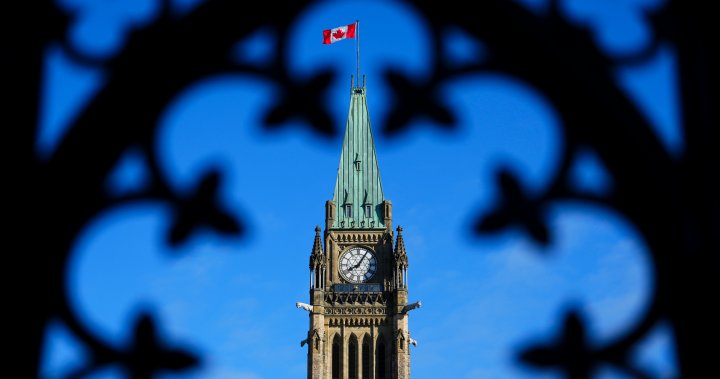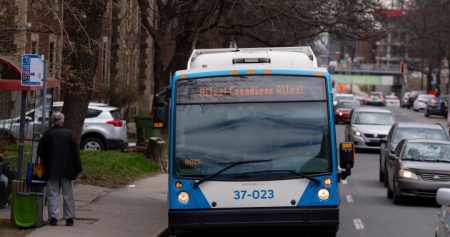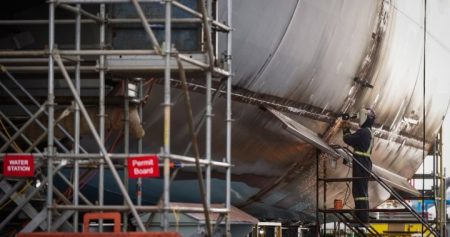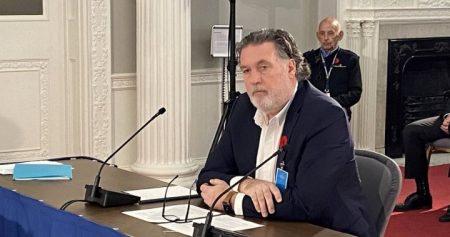A looming deadline hangs over the Canadian Parliament as Members of Parliament prepare to vote on a crucial government funding bill requesting $21.6 billion in supplementary appropriations. The bill encompasses funding for a range of programs, including vital support for First Nations child and family services, compensation to the Quebec government for services rendered to asylum seekers, and a significant allocation for the Department of National Defence’s Canadian multi-mission aircraft project. The deadline for the vote, December 10th, adds a heightened sense of urgency to the proceedings, as failure to approve the funding would leave the government without the authority to disburse these critical funds. This situation unfolds against a backdrop of parliamentary gridlock, stemming from a protracted dispute between the governing Liberals and the opposition Conservatives.
The parliamentary impasse has its roots in the Conservatives’ persistent demands for documents related to alleged misspending within a government green-tech fund. This issue has fueled an ongoing privilege debate, effectively paralyzing the House of Commons and impeding the progress of government business. The Conservatives have vowed to continue the privilege debate until their demands for transparency are met, prioritizing this matter over other parliamentary affairs. However, Speaker Greg Fergus intervened, invoking House rules and procedures to temporarily suspend the privilege debate, paving the way for the critical vote on government spending to proceed. This decision underscores the importance of addressing the urgent funding requests contained within the supplementary appropriations bill.
The $21.6 billion funding package addresses several key areas of government expenditure. A significant portion, $955.2 million, is earmarked for the First Nations child and family services program, ensuring continued compliance with Canadian Human Rights Tribunal orders and the ongoing provision of essential supports. Another substantial allocation, $581.3 million, will compensate the Quebec government for its role in providing services to asylum seekers. This funding, channeled through Immigration, Refugees and Citizenship Canada (IRCC), acknowledges the province’s contribution to managing the influx of asylum seekers. The bill also includes $561 million for the Department of National Defence, specifically designated for the acquisition of up to 16 P-8A Poseidon aircraft, a crucial element of the Canadian multi-mission aircraft project.
The purchase of the P-8A Poseidon aircraft represents a critical investment in modernizing Canada’s maritime patrol capabilities. Intended to replace the aging CP-140 Aurora aircraft, which have been in service for over four decades, the Poseidons are slated for delivery beginning in 2026. This acquisition will significantly enhance Canada’s ability to conduct maritime surveillance, search and rescue operations, and anti-submarine warfare. The funding allocated in the supplementary appropriations bill represents a crucial down payment on this vital defense modernization effort. Delaying or denying this funding would jeopardize the timely acquisition of these aircraft and potentially impact Canada’s national security interests.
The various government departments involved have emphasized the critical nature of the funding requests, asserting that none of the funds represent expenditures already incurred. Should the funding not be approved, departments would face significant challenges. IRCC might be forced to draw from contingency funds to reimburse Quebec, while the Department of National Defence could encounter difficulties meeting contractual obligations and maintaining the trajectory of its critical projects. These potential consequences underscore the importance of parliamentary approval for the supplementary appropriations. The government House leader, Karina Gould, emphasized the significance of the vote, highlighting the positive impact the funding would have for Canadians and stressing the importance of Parliament fulfilling its duty to approve these essential expenditures.
While the situation remains fluid, the outcome of the vote appears predictable. NDP Leader Jagmeet Singh has publicly committed his party’s support for the supplementary estimates, primarily due to the inclusion of $317 million for the government’s new dental care program. This commitment effectively guarantees the passage of the bill, given the combined parliamentary strength of the Liberals and the NDP. Despite the preceding parliamentary stalemate, the urgent need for these funds, coupled with the NDP’s support, virtually assures the approval of the supplementary appropriations. This will enable the government to continue funding essential programs and services for Canadians, including support for First Nations children and families, compensation for Quebec’s asylum seeker services, and the crucial modernization of Canada’s maritime patrol capabilities.










